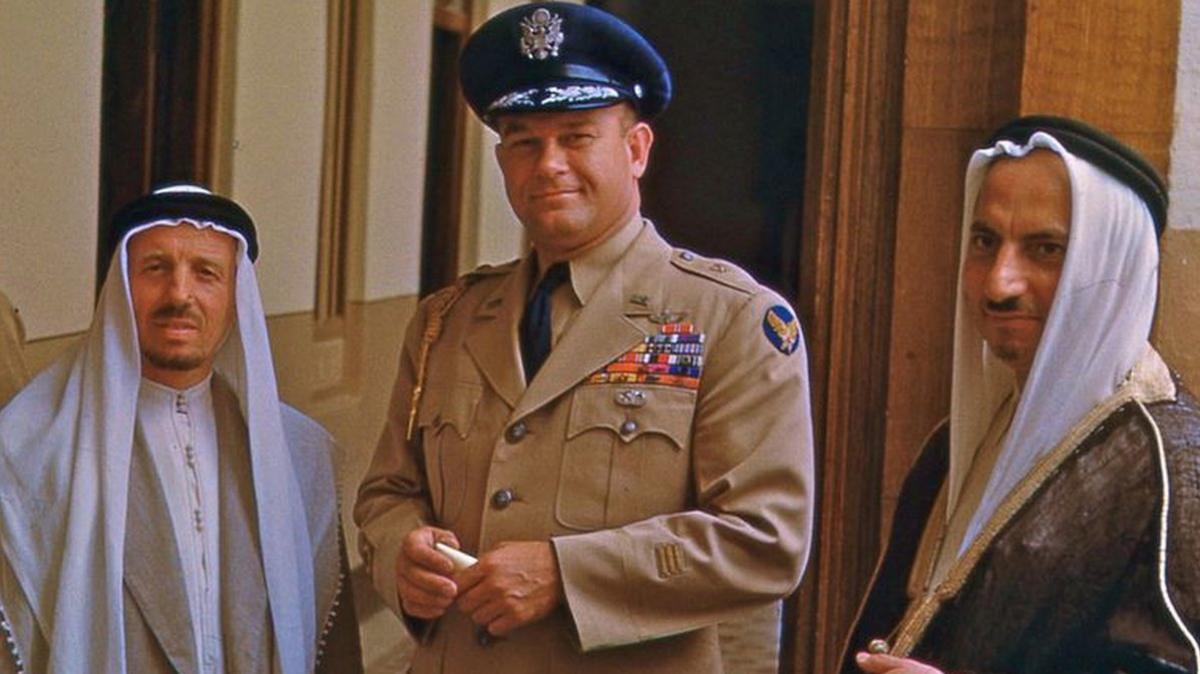Does the US still need Saudi Arabia?
- Published
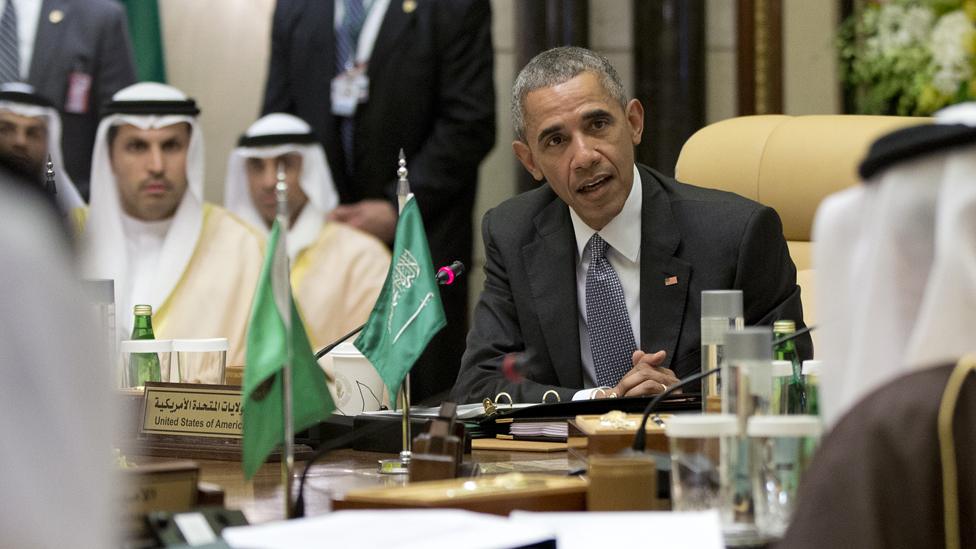
It's been a rough year for the seven-decade-old alliance between the US and Saudi Arabia, from Riyadh's fury over the nuclear deal with Iran, President Barack Obama's comments about free-riding allies, to the Saudi threat to sell off $750bn (£523bn) in US treasury bonds, external and front page headlines decrying the Saudis as "Royal Scum".
Now, the Saudi Deputy Crown Prince is coming to the US with a different message - you may not like us or need our oil as much anymore, but the kingdom is one big investment opportunity.
Mohamed bin Salman, the brash, ambitious and powerful 30-year-old son of the king will be pitching the idea of a deeper economic engagement between the two countries and taking the unusual step of setting an agenda beyond talks in Washington with administration officials.
He is planning meetings on Wall Street in New York, and in Silicon Valley, California, in an attempt to attract investment, as his country's economy reels from the slump in oil prices.
The visit comes just a week after the kingdom unveiled bold, some say unrealistic, plans to transform its oil-based economy into one driven by the private sector. The National Transformation Plan, external (NTP), dubbed Vision 2030, aims to diversify sources of income, slash unemployment, promote Islamic tourism and expand the country's local defence industry.
It's already been a year of rapid change inside the kingdom, since the ascension to the throne of King Salman in January 2015 with several cabinet reshuffles and the meteoric rise of the king's son. There has been much speculation about palace intrigue and the stability of the kingdom.
Saudi Arabia agrees plans to move away from oil profits
Saudi Arabia's King Salman marks year of change
No oil jobs in an oil-rich Kingdom
Writing in UK newspaper the Financial Times, Mohammed Alyahya, a Saudi consultant, said that the NTP, "together with other recent developments, should not be viewed as evidence of a state losing its way but rather as signs of a country on the cusp of transformation".
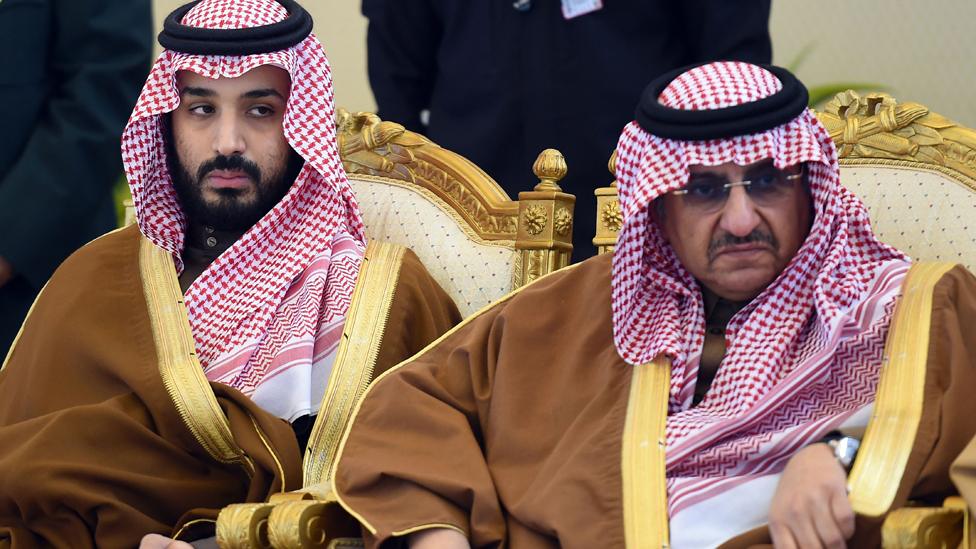
Mohamed bin Salman (left) will be pitching investment in Saudi Arabia during a trip to the US
If there was much sulking in the wake of the Iran deal, the young prince seems to be trying to prove to the US that Saudi Arabia is not a free rider but has a lot to offer and is the better country to bet on in the region.
In private, American officials have occasionally indicated, external to me that they believe, in the long term, Iran is a more natural ally of the US than the conservative Saudi monarchy or at least that it stands a better chance of developing into a democracy.
The nuclear deal struck last summer was also seen as a way of empowering Iran's reformers. So it's ironic that it is the absolute monarchy that is now attempting to lead a rapid reform programme, spurred perhaps not only by necessity but also by a desire to outpace its arch nemesis.
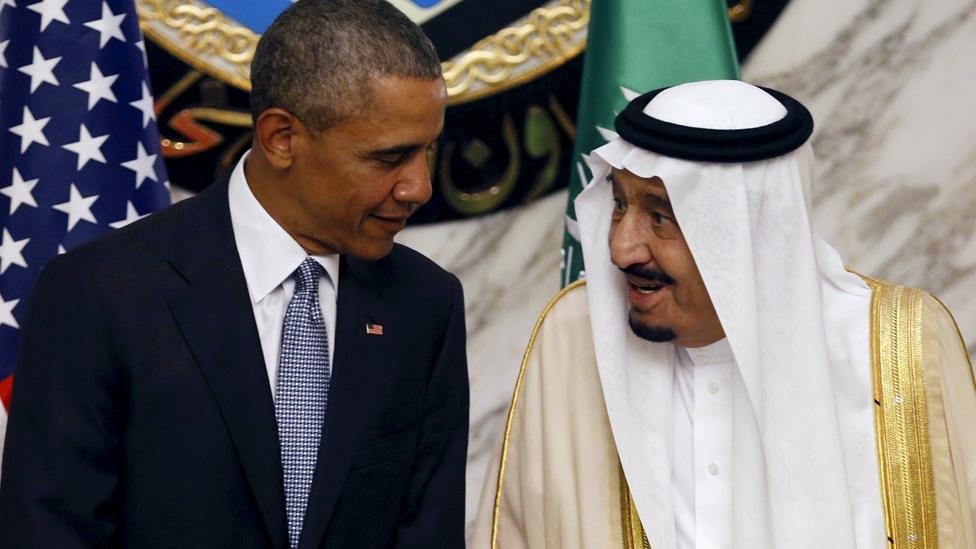
King Salman quickly promoted his young son, Mohamed, to a powerful role
In a region going through such upheaval, Saudi Arabia remains a key player and the only Arab country left with regional power, even if the drop in oil prices means the kingdom has had to cut back on the largesse it distributed to friends and allies to maintain its clout.
Egypt is consumed by its internal political and economic troubles and its struggle against a militant insurgency in Sinai. Syria has been reduced to a battlefield where Iran's power has grown tremendously.
Saudi Arabia is leading the charge against Iran in the region, militarily and economically, trying to put Iran back into the box that the US opened with the nuclear deal and lifting of sanctions.
The kingdom's foreign policy has become increasingly activist, with devastating consequences for neighbouring Yemen, where a Saudi-led coalition says Iran is backing Houthi rebels. Last year, Saudi Arabia became the world's largest military spender. President Obama may have harsh words for the Saudis, but his actions tell a different story.
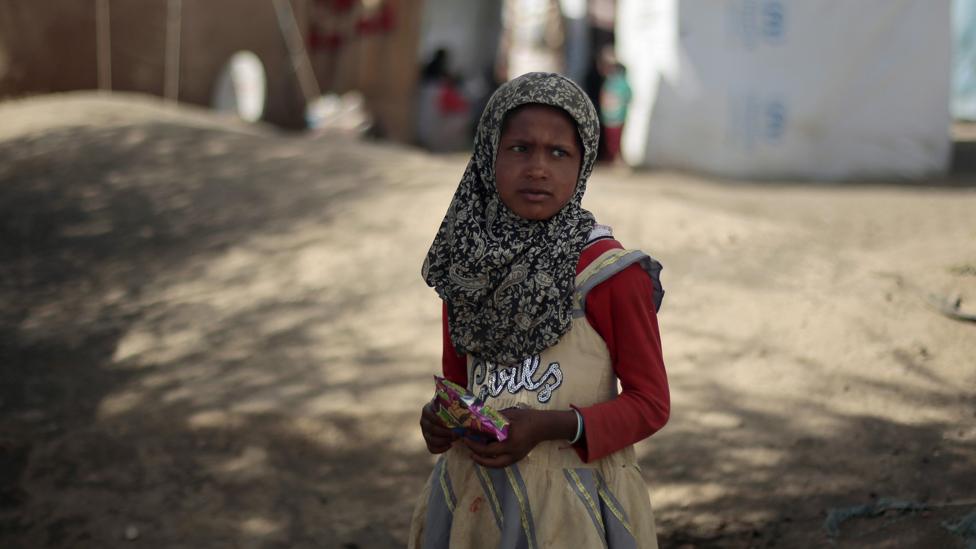
Yemen's war has killed at least 6,200 civilians and injured tens of thousands of Yemenis; 2.4 million people have been displaced
In 2010, the Obama administration authorised weapon sales of up to $60bn to Saudi Arabia. Since then, the administration has concluded deals for nearly $48bn in sales - triple the total amount under the George W Bush administration.
But beyond the imperatives of a stable kingdom or the essential co-operation on counter terrorism, perceptions of Saudi Arabia will be hard to change.
There is little that Democrats and Republicans agree on these days but they seem united in their criticism of the kingdom. Even at the White House, officials occasionally remind visitors that the large majority of 9/11 hijackers were not Iranian, but Saudi, according to the Atlantic's Jeffrey Goldberg, external.
The US Senate has passed a bill allowing the Saudi government to be held responsible for any role in the 9/11 attacks - prompting the threat to sell of US Treasury bonds.
And in a recent opinion piece in the New York Times, external, commentator Nicholas Kristof wrote that "Saudi Arabia legitimises Islamic extremism and intolerance around the world. If you want to stop bombings in Brussels or San Bernardino, then turn off the spigots of incitement from Saudi Arabia and other Gulf countries".
The kingdom was back in the spotlight after UN Secretary General Ban Ki-moon revealed Saudi Arabia had pressured him to drop the country from a blacklist over child casualties in Yemen, a war that the US has tacitly supported.
Riyadh threatened to cut off all funding to the UN, external and issue a fatwa against the world body, prompting outrage from international human rights organisations.
If the kingdom has had to cut back on its chequebook diplomacy because of the oil prices slump, it can still deploy its wealth as political pressure and tout its plans for reform to weave a more positive narrative about what Saudi Arabia has to offer.
- Published26 April 2016
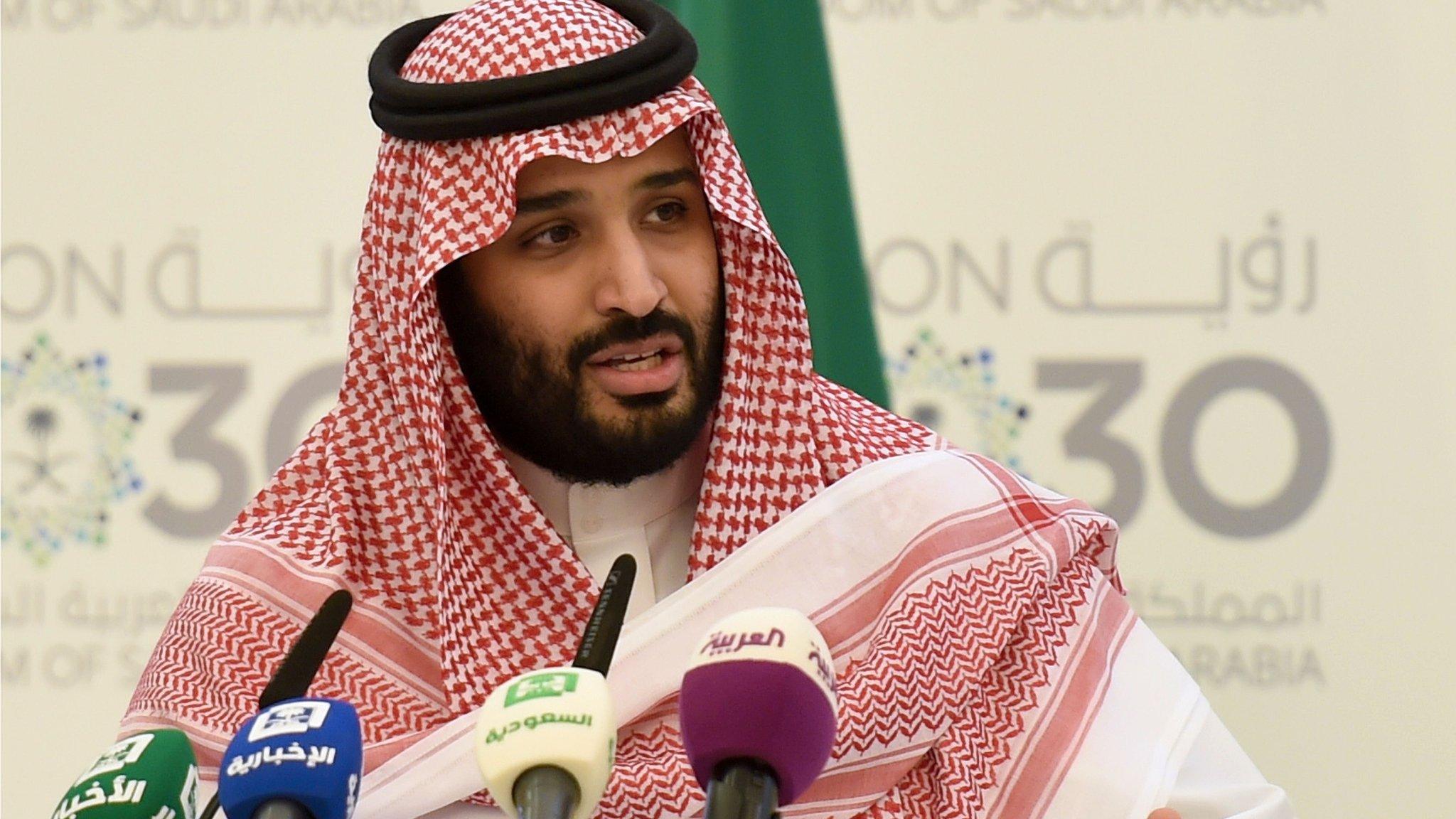
- Published6 June 2016
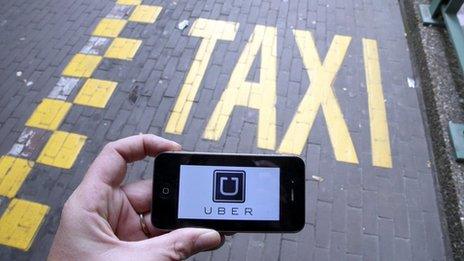
- Published20 May 2016
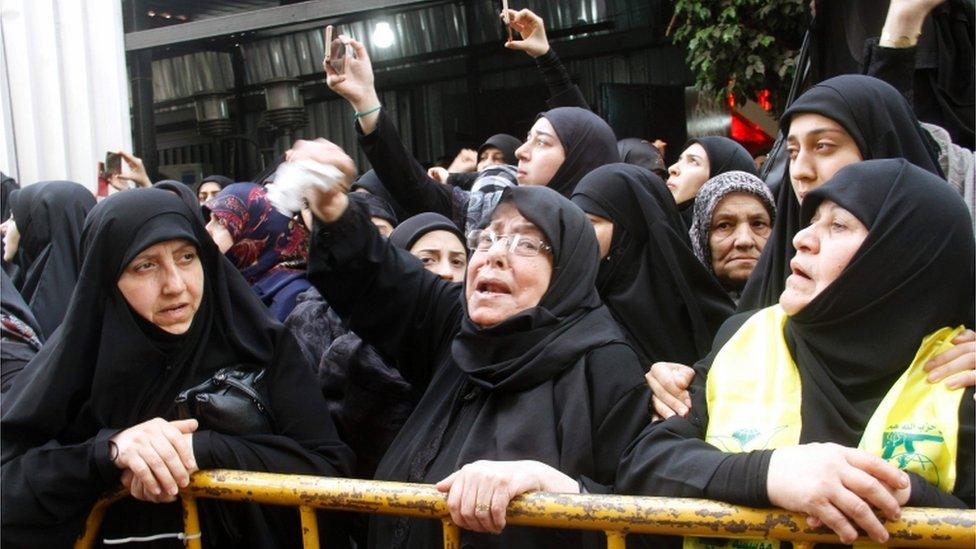
- Published3 June 2016
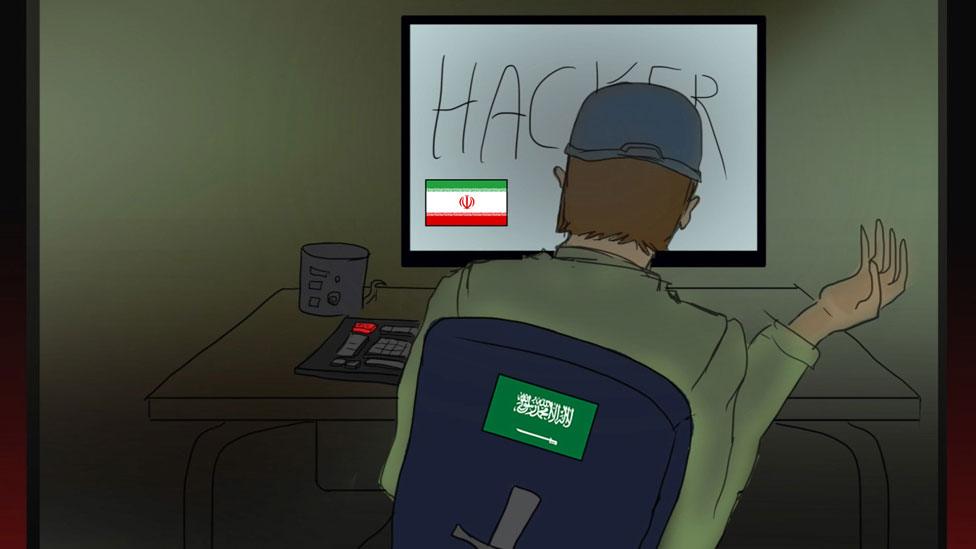
- Published8 June 2015
